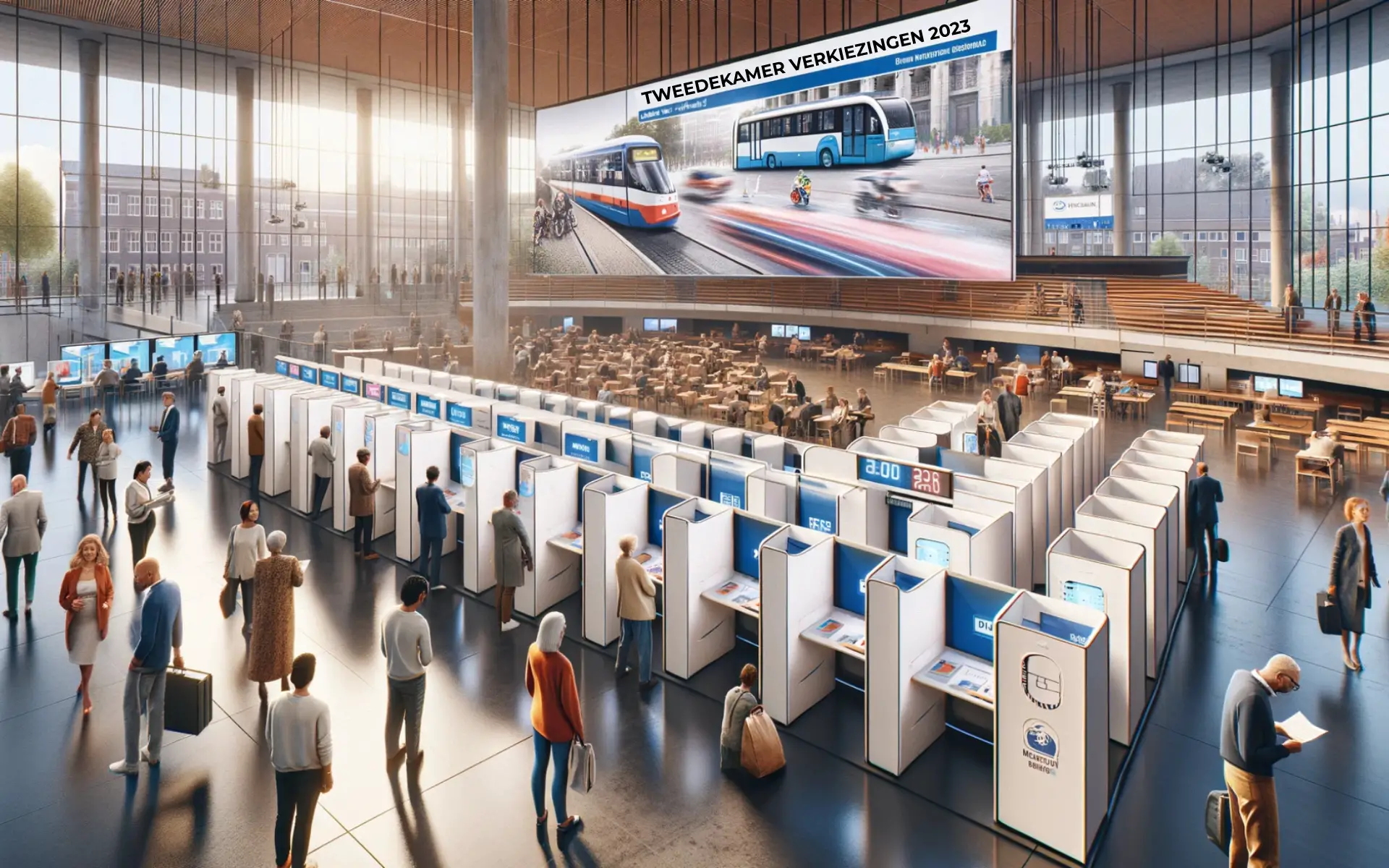These are the mobility positions of major political parties
Mobility views Second Chamber Elections
The overview below lists the mobility positions of the VVD, GroenLinks/PvdA, BBB, CDA, PVV, D66, SP, VOLT and Party for the Animals.
VVD
It is interesting to take note of what the most relevant political parties think in the field of (car) mobility. For example, the VVD writes in its election program that in the future it wants to work toward a system of Pay by Use to which everyone contributes, including when using electric transport. The premise is that car taxes will not be increased.
“We make sure that it continues to pay financially to drive electric and we make sure that this is handled in a modern way in the state budget as well.”
GreenLeft/PvdA
GroenLinks/PvdA want to accelerate the introduction of Pay by Use for motorists so that the polluter will pay. In their view, it is fairer to charge a lower fare in regions where people depend on the car because public transportation is not a good alternative and differentiation by time takes place.
“We invest in (express) bike lanes in the inner and outer areas, sufficient bike parking facilities (including at train stations) and national regulations are changed to keep (moped) scooters off the bike path within built-up areas.”
BBB
The BBB opposes Pay by Use in the manner discussed so far in politics. With the so-called “flat tax,” car users in the region are hit harder than people in the Randstad, the party believes. This is because increasingly long travel distances are required for basic amenities, such as schools, police stations and supermarkets, with few to no alternatives (public transportation) available.
“We do not introduce road pricing (Pay by Use) in addition to or on top of current taxes and fees that tax all use and property.”
CDA
The CDA says it opposes bill driving in rural areas because someone living there has fewer alternatives to the car than someone in the city and wants to charge people outside the Netherlands via an e-vignette to maintain the road network.
“A circular economy (reuse) in terms of metals, for example, is simply necessary to remain competitive and to ensure security of supply of raw materials.”
PVV
In its election manifesto, the PVV writes: “This government thinks it can save the climate by tackling the motorist and wants to turn driving a car into a luxury product by increasing the burden. They want to introduce road pricing, there will be a ban on fuel cars and the price of fuel will go through the roof. This is pure bullying behavior to fill the state’s coffers. We do not want the motorist to be used as a cash cow any longer.”
“We believe everyone should decide for themselves the way a person travels to his or her destination.”
D66
D66 wants to make motoring fairer by introducing road pricing. With a charge based on CO2 emissions, location, time and weight and a higher rate in urban areas to discourage car use there and improve urban air quality. At the same time, D66 wants a rebate in areas where people are more dependent on the car because facilities are at greater distances and public transport offerings are fewer.
“We want to make automobility more sustainable, reducing CO2, nitrogen and particulate matter emissions. We will continue to encourage electric cars with subsidies and tax breaks.”
Christian Union
“We are serious about the goal of allowing only zero-emission passenger vehicles in showrooms from 2030. Commuters should additionally retain the right to a mileage allowance when using a company bicycle. Just as for car commuters, employers are allowed to give cyclists a mileage allowance. This is standing policy and will remain unchanged, as far as the Christian Union is concerned.”
Party for the Animals
“By investing in new bike highways and bike lanes, we are increasing the (commuting) distance that can be comfortably traveled by bike.”
SP
The SP wants motoring to be cleaner and not more expensive and supports a requirement for manufacturers that all new cars must be emission-free by the year 2035 at the latest. The party opposes road pricing (Pay by Use). Furthermore, the SP believes that “unfair subsidies and tax exemptions for plug-in cars end up with people who don’t need it.” Therefore, that category should pay full tax from now on to prevent people who cannot plug in cars from footing the bill. If it were up to the SP, all roads in the Netherlands would become toll-free and investments would be made in cycling and walking infrastructure. The party writes in its election manifesto that it wants to invest more in public transport and allow provinces to establish their own transport companies. Furthermore, the SP wants to immediately make public transport cheaper everywhere by eliminating VAT and eventually working toward free public transport.
VOLT
Volt wants subsidies for electric cars to continue through 2030, although it will slowly phase out after 2025. Volt wants the maximum list price of cars that may be purchased with a subsidy to go down starting in 2025 and to be phased out incrementally.

